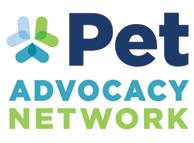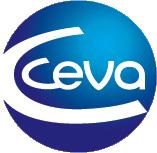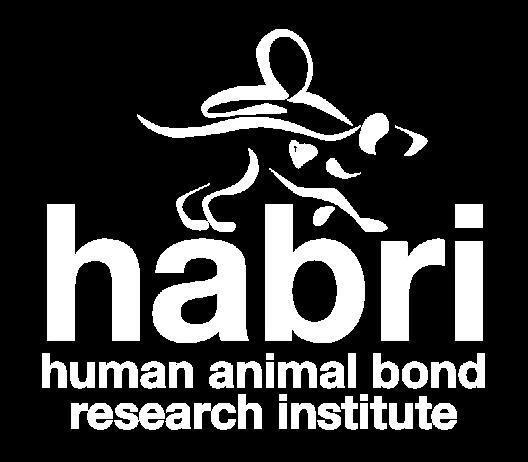

IMPACT REPORT 2023





HABRI is a not-for-profit organization that funds innovative scientific research to document the health benefits of companion animals; educates the public about human-animal bond research; and advocates for the beneficial role of companion animals in society.
OUR VISION:
The human-animal bond is universally embraced as an essential element of human wellness.
OUR MISSION:
Advance, through science, education and advocacy, the vital role of the human-animal bond in the health and well-being of people, pets, cultures and communities.
As a co-founder of the Human Animal Bond Research Institute (HABRI), I am excited to write about the incredible progress that our organization has made in research and education. Not only can we look back with pride on HABRI’s accomplishments, but we can look forward to a future in which HABRI has an increasingly positive impact for people, pets and the professionals who care for their health.
In this report you will read about the scientific research that HABRI has been able to fund. While it is intuitive that pets and people are good for each other, we founded HABRI on the concept that the positive effects of the human-animal bond could be measured. This research is ongoing, but the work of the research community, turbocharged by HABRI, has clearly shown this to be the case. At every stage of our lives, there is scientific evidence supporting the positive human health impact of pets. In fact, the research is so persuasive that we can now begin to think of the benefits of pets not just at the level of individual or family health, but also as a necessary component of community and public health.

Our pets have also benefited immensely from the work of HABRI. We have developed groundbreaking data to document that stronger bonds lead to better preventive and therapeutic veterinary care for our animals. We have also shown that greater knowledge and communication of human-animal bond science, particularly among pet owners and veterinarians, is an important key to unlocking stronger bonds and better health on both ends of the leash.
Armed with this powerful knowledge, where does HABRI go from here? Even as we continue to fund vital research, HABRI and its partners are in a unique position to drive societal change.
We are guided by the following principles:
• The human health benefits of the human-animal bond are indisputably vital to the mental and physical health of individuals, families, communities and cultures;
• Based on universal health benefits pets provide, the ability to acquire and keep a healthy pet should be considered an equitable right for all;
• Pet health and welfare is integral to the mutually beneficial human-animal bond and must be supported through expanded access to pet care for all, regardless of cultural differences or socioeconomic status.
HABRI and its partners are in the best position to advance these principles through researchbased advocacy. Policy – the rules, regulations and societal structures that relate to pet acquisition and care – has not adapted at the same exponential pace as the strength of the human-animal bond. Our work as we go forward will be to accelerate policy changes to create a more petinclusive society that fulfills these guiding principles.
It is important to acknowledge HABRI’s partners without whom none of this work would be possible. Many industry initiatives have come and gone, but HABRI has continued to grow and thrive because so many industry partners have made a long-term commitment to HABRI’s success. Every one of these companies and organizations, and the amazing professionals who give them life, have come to the table in support of the HABRI vision and mission. To all of you, I offer my personal thanks, and urge you to continue your involvement. Pets are so clearly a force for good in our world, and so too are the people who help keep them happy and healthy every day.
Looking back on a long and fulfilling career as a veterinarian, I am proud to have been present at the creation of HABRI. Thank you for the opportunity to be a part of something so meaningful. Thank you for supporting HABRI and safeguarding and strengthening the human-animal bond!
Sincerely,
J. Michael McFarland, DVM Chair, HABRI Board of TrusteesJ. MICHAEL MCFARLAND Chief Medical Officer Zoetis
CARRIE DEVERELL
VP, Corporate Affairs
Mars Science & Diagnostics
VIC MASON President
World Pet Association
SUSANNE KOGUT
President & Executive Director
Petco Love
JANET DONLIN
Executive Vice President & CEO
American Veterinary Medical Association
GENE O’NEILL
CEO
North American
Veterinary Community
PETER SCOTT
President & CEO
American Pet Products Association
AIMEE GILBREATH
President
PetSmart Charities
HEIDI SIROTA
Chief Pet Officer
Nationwide
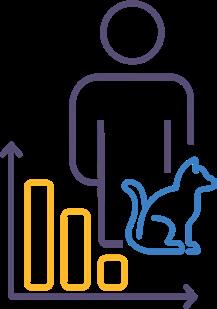
Play a leading role in the advancement of human-animal interaction science, focusing on research with real-world impact.
HABRI has become one of the leading private funders of human-animal interaction research, supporting research all over the world.
• Research proposals from 30+ countries and 200+ institutions worldwide.
• Largest library of human-animal interaction science.
• Actionable research leading to better health for: veterans, older people, children with autism, and families.
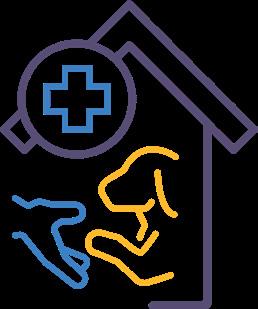
Drive policy changes that support the human-animal bond and strengthen the role of companion animals in society.
HABRI engages in research-based advocacy, working to remove barriers so that everyone can benefit from the human-animal bond.

• HABRI and its partners have developed persuasive data, tools and resources to advocate for solutions that create more pet-inclusive housing, keeping pets and people together.
• HABRI is demonstrating the link between the human-animal bond and public health, advocating for policies that support health and wellness for people and pets.
• Pet ownership saves the U.S. health care system $22.7 billion every year.
• Pet Week brings the power of pets to Capitol Hill, delivering the message to our elected representatives that pets are important for human health and quality of life.

Partner with a broad alliance of companies and organizations to advance the human-animal bond as a vital component of personal wellness and public health.
HABRI not only brings together a wide-ranging group of pet care leaders, it is also developing new partnerships to advance the humananimal bond in society.
• The HABRI Spring Policy Forum brings together researchers, human health practitioners, the pet care community, and public policy experts, to serve as a springboard for collaborations in research, practice, and policy on the important role of companion animals for better mental health.
• The Human Animal Bond Innovation Awards recognize companies and organizations outside the pet space with innovative programs and initiatives designed to advance the human-animal bond and create a more pet-friendly society.

Serve as the leading global information source and educator on the human-animal bond.
HABRI is the leading source of information on the humananimal bond, with research-based education and content.

• Human-Animal Bond Certified has become the one-and-only certification for animal health professionals looking to engage with their clients through the communication and the science of the human-animal bond.
• First-of-its-kind survey data commissioned by HABRI in partnership with Zoetis from ten countries shows a universal commitment to the human-animal bond.
• HABRI materials have been translated into five languages to bring the science of the bond to a growing international audience.

HABRI has funded more than $3 million in scientific research investigating the health benefits of the humananimal bond and seen over 20 academic publications result from this ongoing research. HABRI has received research proposals from 268 different institutions and organizations from 33 countries around the world.
• Service dogs are an effective complementary treatment for military veterans with posttraumatic stress, reducing stress, depression and social isolation.1
• The presence of classroom pets may provide some positive effects for children in third and fourth grade, such as improving social skills and competence for children and may also decrease select problem behaviors in the classroom.2
• Shelter cat adoption is associated with greater empathy and less separation anxiety for children with Autism, along with fewer problem behaviors including externalizing and hyperactivity.3
• Children in dog-owning households have lower peer problems and conduct problems, and higher pro-social behaviors than children from non-dog owning households. Dog ownership is associated with positive social-emotional development, particularly among families who walked or played with their dog more often.4
• Fostering a shelter cat can alleviate loneliness and improve mental health for older adults living independently alone. Removing perceived barriers to pet ownership can help older adults live healthier, happier lives and also spur the adoption of shelter cats into loving homes..5
[1] O'Haire, Marguerite E., and Kerri E. Rodriguez. "Preliminary efficacy of service dogs as a complementary treatment for post traumatic stress disorder in military members and veterans." Journal of consulting and clinical psychology 86.2 (2018): 179.
[2] McCullough, A., Ruehrdanz, A., Garthe, R., Hellman, C., and O’Haire, M., (2019) Measuring the Social, Behavioral, and Academic Effects of Classroom Pets on Third and Fourth-Grade Students. Human Animal Interaction Bulletin. Advance online publication.
[3] Carlisle, G. K., Johnson, R. A., Wang, Z., Bibbo, J., Cheak-Zamora, N., & Lyons, L. A. (2020). Exploratory study of cat adoption in families of children with autism: Impact on children's social skills and anxiety. Journal of Pediatric Nursing, 58, 28-35.
[4] Wenden, E. J., Lester, L., Zubrick, S. R., Ng, M., & Christian, H. E. (2020). The relationship between dog ownership, dog play, family dog walking, and pre-schooler social–emotional development: findings from the PLAYCE observational study. Pediatric Research, 1-7.
[5] Sanderson, Sherry L., et al. "The Impact of Cat Fostering on Older Adult Well-Being and Loneliness: A Feasibility Study." The Journals of Gerontology: Series B 79.1 (2024): gbad140.

EVALUATING THE EFFECTS OF FACILITY "STATION DOGS" ON BURNOUT AND MENTAL HEALTH FOR FIRST RESPONDERS
Dr. Kerri E. Rodriguez, PhD (University of Arizona)
Using a cross-sectional design, this study will quantify the effects of full-time facility dogs (“station dogs”) on law enforcement officer’s mental health and job-related wellbeing in police stations across the US. Findings from this study will provide a critically needed validation of facility dogs as a novel application of the human-animal bond for our nation’s first responders, paving the way for future, longitudinal research on this complementary treatment option.
A ONE HEALTH APPROACH TO SUPPORTING CANCER SURVIVORS AND THEIR PETS
Jennifer Currin-McCulloch, PhD, LMSW and Lori Kogan, PhD (Colorado State University)
This study will help cancer survivors enjoy the benefits of their relationship with their pet by minimizing the stress involved with meeting their pets’ needs during their survivorship trajectory. Researchers will conduct an online, mixed methods survey to identify if and how pets serve as emotional buffers and/or stressors for cancer survivors and how support systems can promote their ability to provide for their pets’ physical and emotional well-being. The long-term goal is to develop assessment and intervention strategies to support cancer survivors in the care of their pets throughout their cancer experience.
ASSESSING THE INFLUENCE OF EQUINE-ASSISTED
Dr. Kimberly Cole, Professor (The Ohio State University)
Using a within-subject repeated measures design, this study will investigate the influence of equine-assisted services (EAS) on biological and psychological responses of individuals who have experienced trauma as well as their equine facilitators. Results of this study will provide new evidence of the influence of animal-assisted interventions (AAI) and provide a greater understanding of the bond-formation ability of human-horse dyads. Additionally, this study will provide a better understanding of the impact of EAS on the equine participants.
Laurie Martinez, PhD, MBA, MSN, RN, AHN-BC (Florida Atlantic University)
This is a longitudinal, observational pilot study of Military Adolescents (MAs) regarding the role pet dogs play in their lives. This project seeks to examine the association of resilience and well-being in MAs that have a pet dog compared to MAs that do not have a pet dog, to examine whether resilience and well-being are associated with levels of MA-dog attachment, and to examine whether MA demographics are associated with MA-dog attachment, resilience, and well-being. Results of this study can inform policies and programs that promote the mental health and well-being of military adolescents, while also contributing valuable insights on the human-animal bond.
HABRI has conducted survey research on timely topics related to pet ownership and the human-animal bond, including the largest-ever survey of international pet owners and veterinarians across 10 countries, and an important survey examining the experiences and perceptions of pet owners of color.
• The human-animal bond is valued and recognized among pet owners across all countries and cultures.
• 98% of pet owners across the globe have experienced at least 1 positive health impact from pet ownership.
• Highly bonded pet owners are significantly more likely to report that their pet benefits their health, and are significantly more likely to report they provide their pet with preventive and therapeutic veterinary care.
• The human-animal bond is universally strong among all ethnicities.
• Pets are a force for good; 75% of pet owners of color agree that pets help bring people together from different walks of life.
• A concerted effort to increase diversity in the pet care ecosystem and a sustained effort to create a more welcoming environment will boost access to care and help overcome challenges faced by pet owners of color.

• Pet-friendly rental housing continues to be a barrier for pet owners throughout the United States.
• 72% of residents saying that pet-friendly housing is hard to find and 59% say pet-friendly housing is too expensive.
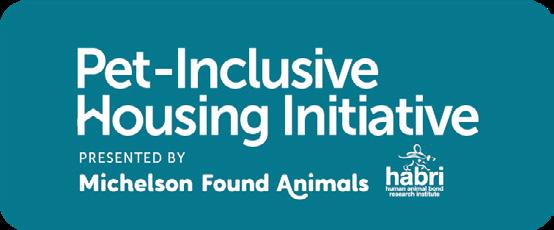
• 92% of pet-friendly housing places some restrictions on the type, number, breed or weight of pets.
• If pet restrictions were lifted on their rental housing, 35% of non-pet owning residents say they would get a pet, and 33% of pet-owning residents say they would get an additional pet.
• 87% of pet owners report their mental health has improved as a result of pet ownership.
• 22% of pet owners have had a pet recommended for their health by a doctor or therapist.
International HAB Survey
HABRI-Zoetis. (2021-2023) International Survey of Pet Owners & Veterinarians.
Survey of Pet Owners of Color
HABRI-Petco Love. (2021) Understanding the Role of Race and Ethnicity in Pet Ownership and Care.
Pet-Inclusive Housing Survey
HABRI-Michelson Found Animals. (2019) Pets and Rental Housing in the United States.
HABRI Benchmark Survey of Pet Owners
HABRI. (2021) Benchmark Survey of Pet Owners.

One in five pet owners had a pet recommended by a doctor or therapist for better health.


• The Human Animal Bond Innovation Awards recognize individuals, companies and organizations doing innovative work designed to advance the humananimal bond and create a more pet-friendly society.
• Award winners are selected at the discretion of an expert committee of pet care community leaders.
• In 2023, HABRI received 49 nominations – nearly double that of the year prior.
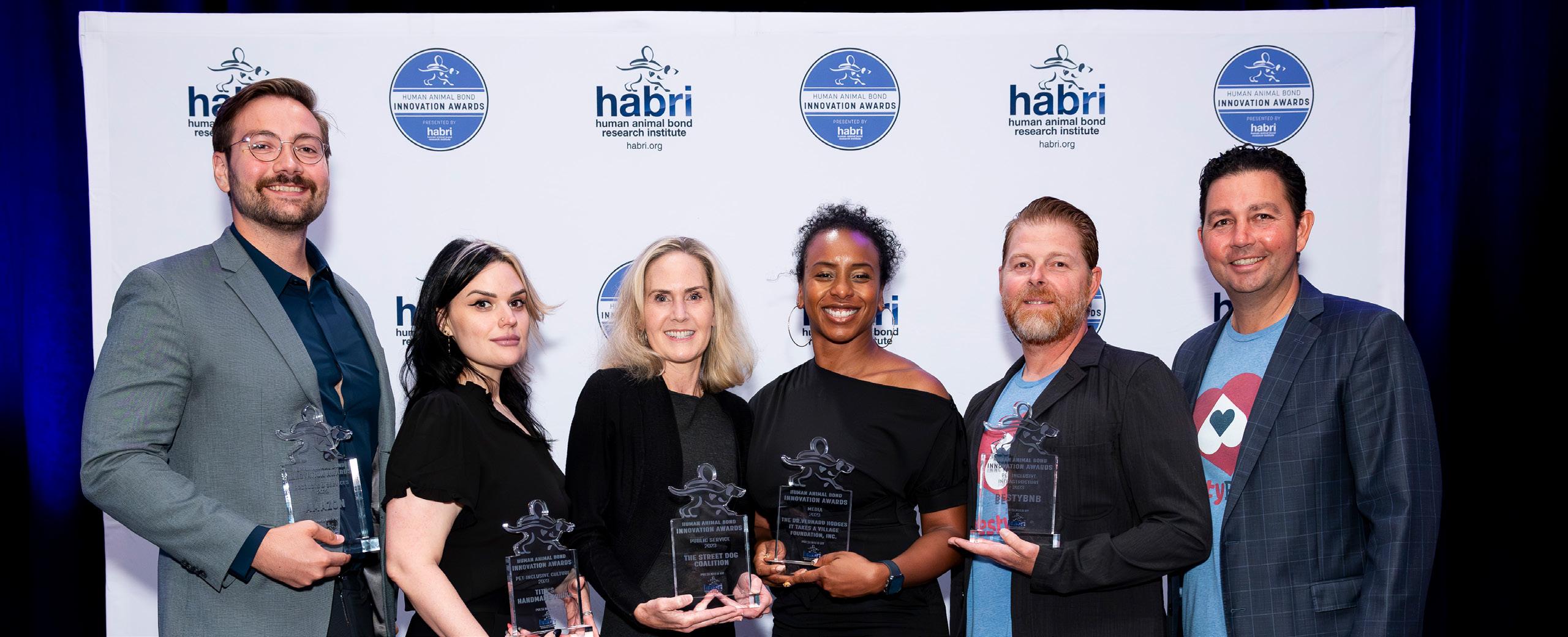
In 2024, we are introducing a new flagship event –the HABRI Spring Policy Forum. Hosted in Washington D.C., the first Forum is focused on moving society toward more widespread awareness of the science behind the human-animal bond and the important role of companion animals for better mental health. The event will feature three core sections – research, practice, and policy – bringing experts together to share information and help guide future efforts.
Human Animal Bond Research Institute
Mental Health & Companion Animals
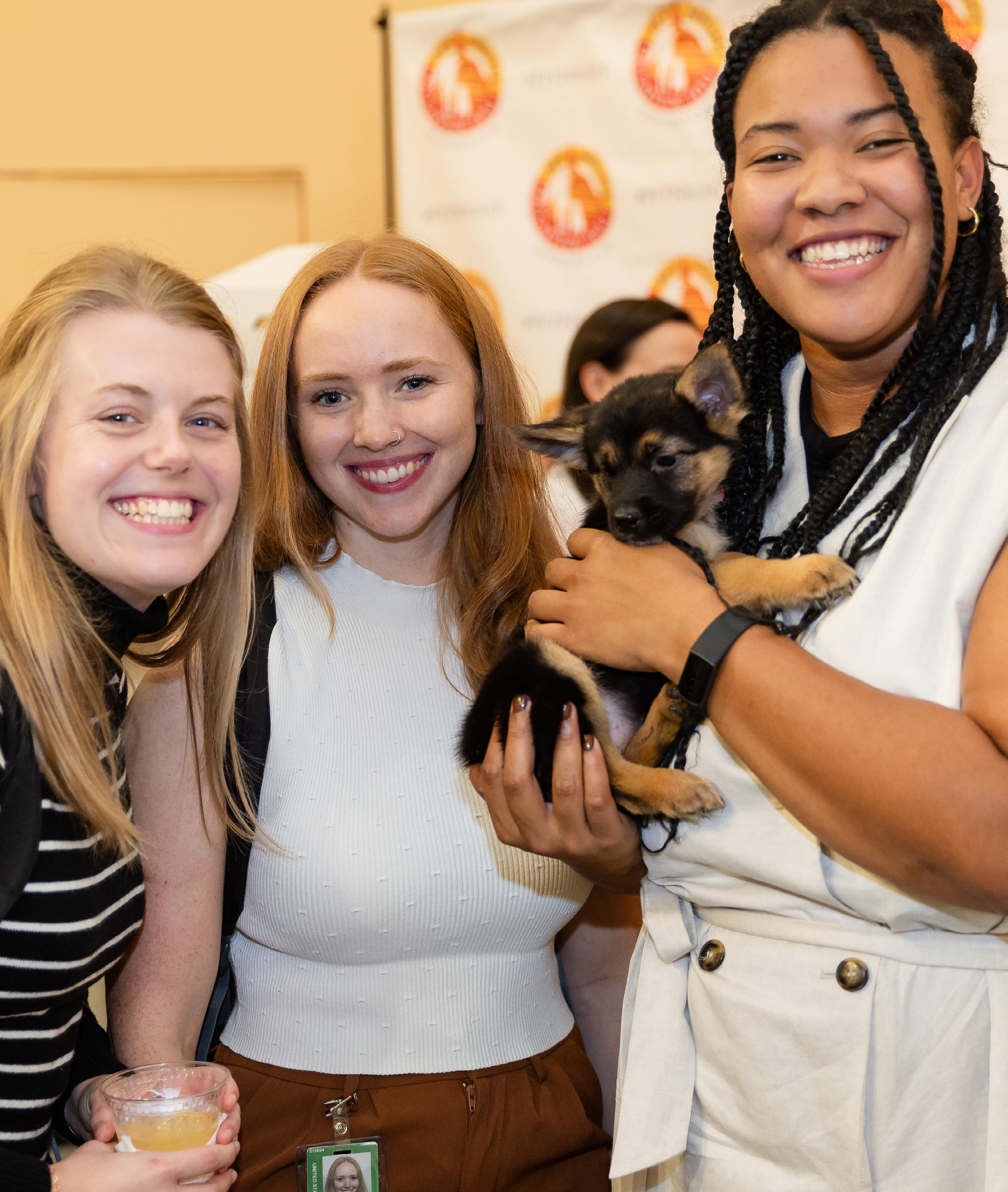
• Pet Night on Capitol Hill is an in-person reception held on Capitol Hill in Washington, D.C., giving Members of Congress and congressional staff an important opportunity to meet with pet care community leaders to learn about the importance of pet ownership to human health and wellbeing. In 2023, more than 200 Congressional offices participated in Pet Night on Capitol Hill.
• In conjunction, Pet Week offers a series of virtual content that shares information about the importance of pet ownership in America and the scientific evidence that shows how policies that strengthen the human-animal bond are vital for both people and companion animals.
92% of funding is dedicated to Research and Education Programming

As a non-profit organization, HABRI relies entirely on donations to support its work to advance the science of the human-animal bond. The strong and continued support of the following companies and organizations makes the work of HABRI possible.











